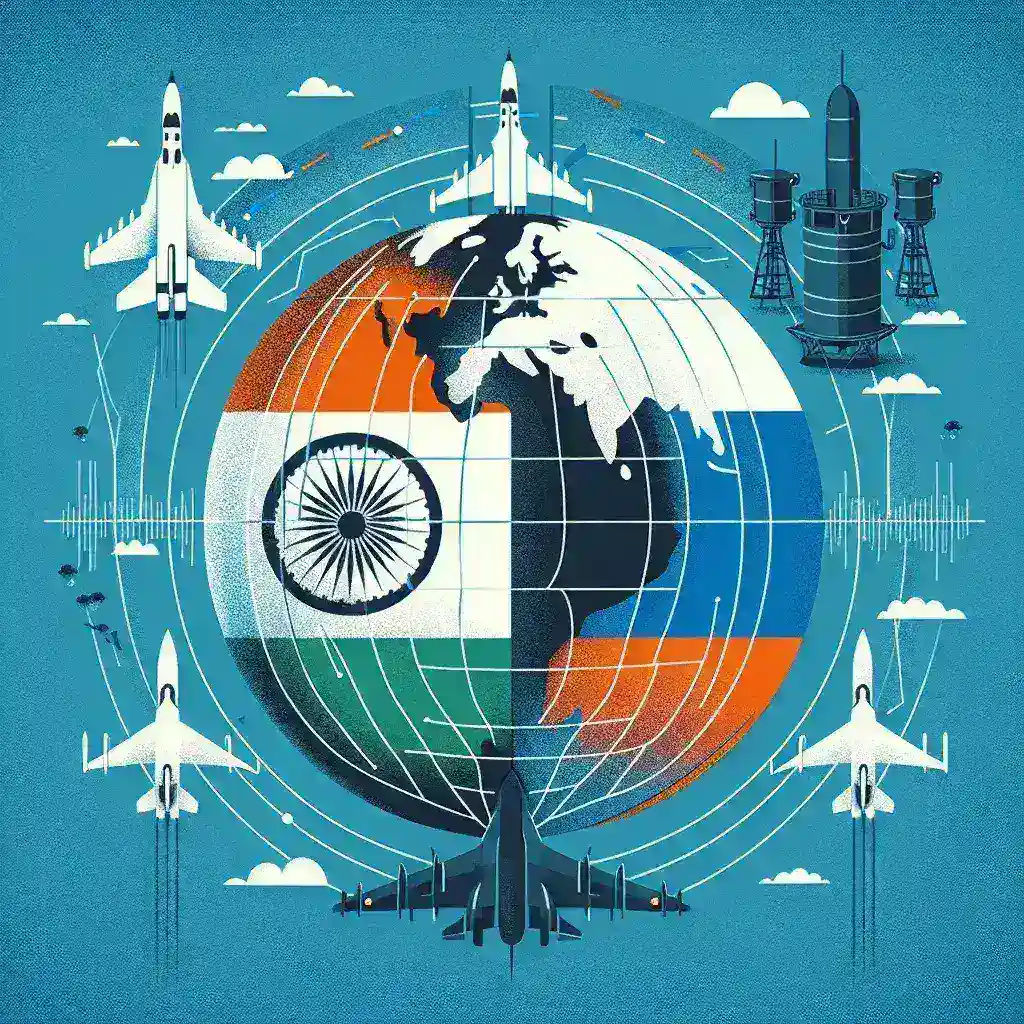India Rejects Claims of HAL Technology Transfer to Russia: A Deep Dive into Geopolitics and Defense
Recent reports alleging that Hindustan Aeronautics Limited (HAL), India’s state-owned aerospace and defense company, shared sensitive technology with Russia have been vehemently denied by the Indian government. This denial, while seemingly straightforward, unveils a complex web of geopolitical maneuvering, technological considerations, and the evolving nature of Indo-Russian defense partnerships. This article delves into the intricacies of this situation, examining the evidence, assessing the implications, and exploring the potential future trajectory of India’s defense collaborations.
The Allegations and the Denial: A Closer Look
The accusations centered on the potential transfer of crucial technological data related to India’s indigenous defense projects. While specifics remain shrouded in some secrecy, the reports suggested the technology in question could be critical to enhancing Russia’s military capabilities. India’s swift and emphatic rejection of these claims underscores the seriousness with which it views such allegations. The government’s statement emphasized its unwavering commitment to safeguarding national security interests and maintaining the integrity of its defense technological advancements.
Geopolitical Context: Navigating a Shifting Landscape
Analyzing this situation requires understanding the broader geopolitical context. India’s relationship with Russia has deep historical roots, forged through decades of strategic partnerships and defense collaborations. However, the global landscape is undergoing a significant shift, with the war in Ukraine significantly impacting international relations. India, while maintaining its strategic partnership with Russia, has also been strengthening its ties with the West, particularly the United States. This delicate balancing act necessitates a careful approach to defense collaborations, ensuring that any partnerships do not compromise India’s national interests or international standing.
Technological Implications: Assessing the Stakes
The alleged technology transfer carries significant technological implications. India has invested heavily in developing indigenous defense capabilities, with HAL playing a pivotal role in this endeavor. Any leak of sensitive technological data could not only harm India’s strategic advantage but also undermine its efforts to become a self-reliant defense manufacturer. Furthermore, such leaks could have far-reaching implications on international trust and could impact future collaborations and technology-sharing agreements.
Evidence and Counterarguments: Scrutinizing the Claims
The reports alleging the technology transfer have yet to be backed by concrete and verifiable evidence. The lack of substantial proof fuels skepticism surrounding the claims. India’s strong denial, coupled with the absence of credible evidence, raises questions about the source and motives behind the initial reports. It’s crucial to maintain a cautious and analytical approach, avoiding premature conclusions without thorough investigation and verification of all available information.
Future of Indo-Russian Defense Cooperation: A Path Forward
The controversy highlights the need for a reassessment of Indo-Russian defense cooperation. Although historical ties remain strong, the current geopolitical climate demands a more nuanced and strategic approach. Both countries need to ensure transparency and mutual trust in their defense collaborations. Robust mechanisms for information security and technology protection are vital to safeguarding sensitive data and preventing any future allegations of technology transfer. Open communication and regular review of existing agreements are crucial to maintaining a healthy and mutually beneficial partnership.
International Perspectives: Global Reactions and Implications
The international community is closely observing the unfolding events. The allegations and India’s denial have implications for international relations and trust among nations. The incident underscores the importance of transparency and accountability in defense technology sharing and the potential consequences of breaches in security protocols. Global responses will likely influence future defense collaborations and the trajectory of international alliances.
A Comparative Analysis: Lessons Learned from Similar Cases
Examining similar instances of alleged technology transfers between nations offers valuable insights. Analyzing past cases, including those involving other countries and similar defense technologies, provides a comparative framework for understanding the potential ramifications and the best practices for preventing such incidents in the future. Such comparative analysis can inform future policy decisions and enhance safeguards in international defense collaborations.
The Role of HAL: India’s Strategic Defense Asset
HAL’s role in India’s strategic defense ambitions is paramount. The company is a crucial player in developing and manufacturing advanced military aircraft, helicopters, and other defense systems. Protecting HAL’s technological assets is essential for safeguarding India’s national security and sovereignty. This incident underscores the need for enhanced security protocols within HAL and a robust system for preventing unauthorized technology transfer.
Conclusion: Navigating the Complexities of Modern Geopolitics
The controversy surrounding the alleged HAL technology transfer to Russia highlights the complexities of modern geopolitics. It underscores the delicate balancing act India faces in navigating its relationships with various global powers while prioritizing national security and its own technological development. Transparency, accountability, and robust security measures are essential for maintaining trust and ensuring the integrity of defense collaborations. The future of Indo-Russian defense cooperation will depend on both countries’ ability to address these challenges effectively and to build a more transparent and secure framework for future technological partnerships.
Looking Ahead: Predictions and Potential Scenarios
Predicting the future trajectory of Indo-Russian defense cooperation is challenging, given the current volatile geopolitical landscape. However, several scenarios are plausible. One scenario involves a strengthening of existing partnerships, with increased emphasis on transparency and security measures. Another scenario could entail a gradual shift towards greater diversification of defense partnerships, reducing reliance on a single major supplier. The outcome will depend on factors such as the evolving global political climate, the resolution of the ongoing conflict in Ukraine, and the extent to which both India and Russia can effectively address concerns regarding technology transfer and national security.
Call to Action: Promoting Transparency and Accountability
The incident serves as a call for greater transparency and accountability in international defense collaborations. Open communication, robust security protocols, and regular audits are essential to prevent future incidents and build trust among nations. Promoting international cooperation on security matters is vital in ensuring a stable and secure global environment.

Leave a Reply